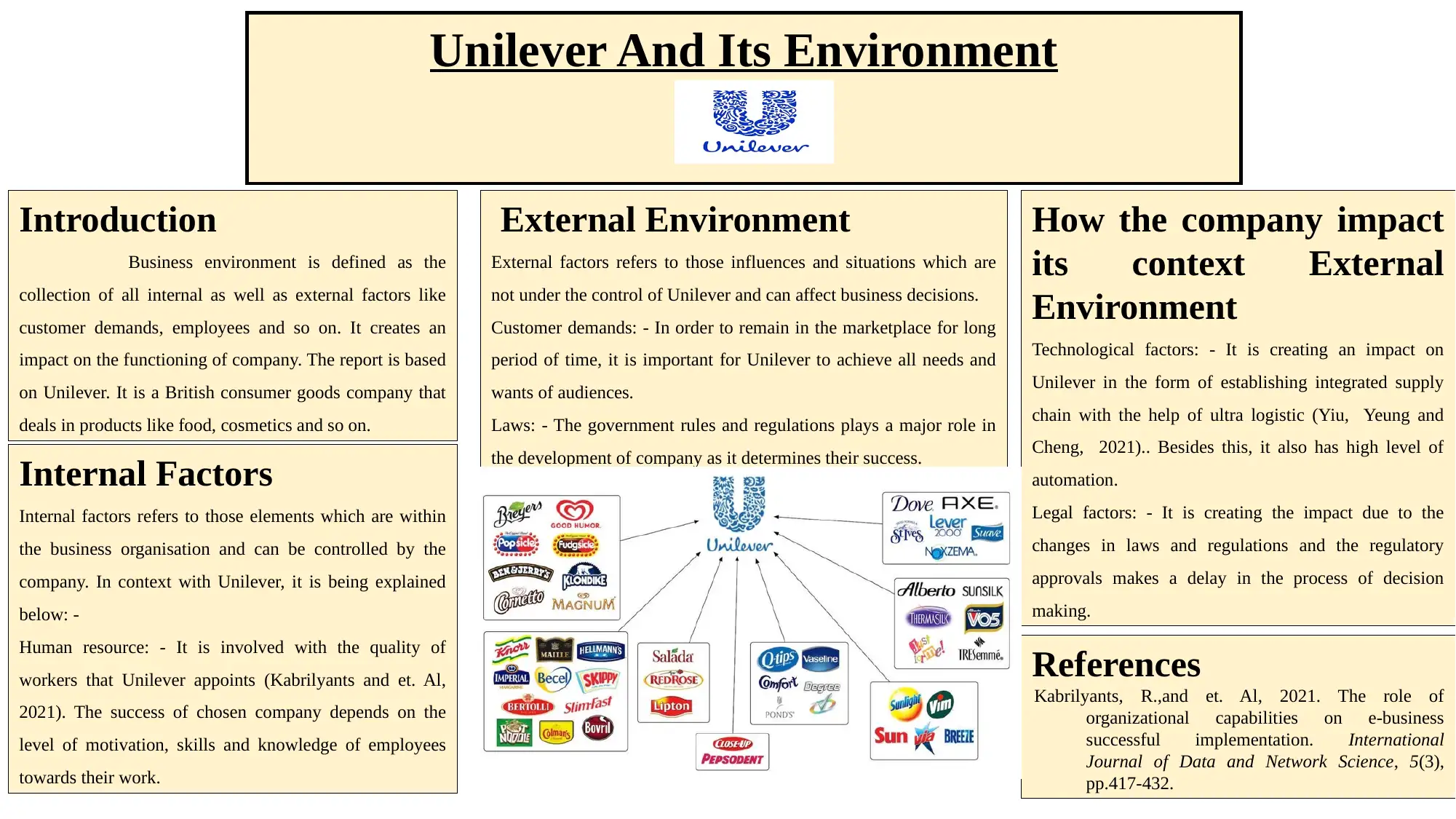Unilever's Business Environment: Key Internal, External Factors
VerifiedAdded on 2023/06/18
|1
|345
|50
Report
AI Summary
This report provides an overview of Unilever's business environment, examining both internal and external factors that influence the company's operations and decision-making. External factors discussed include customer demands, the impact of laws and regulations, and technological advancements such as integrated supply chains and automation. Internal factors highlighted are human resources, emphasizing the importance of employee motivation, skills, and knowledge. The report also touches on the challenges posed by regulatory approvals and the need for Unilever to adapt to the evolving business landscape. Desklib provides access to this and other solved assignments for students.






![[object Object]](/_next/static/media/star-bottom.7253800d.svg)